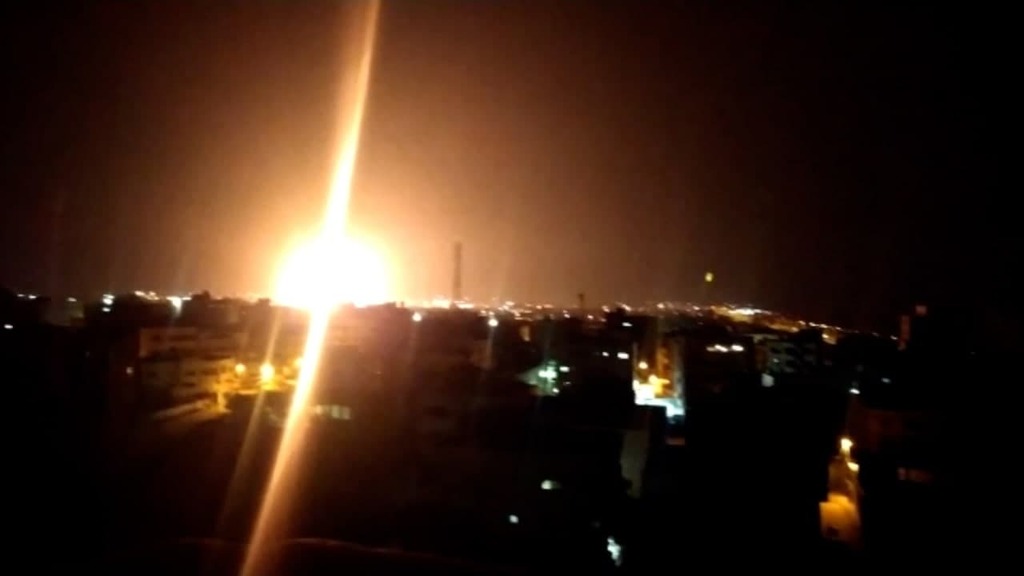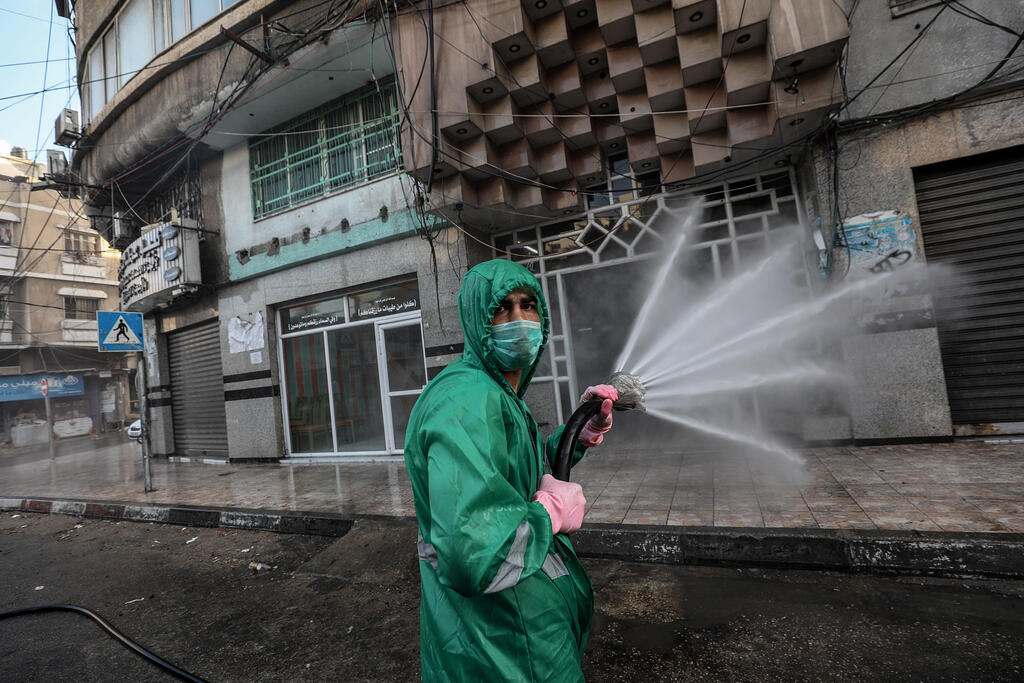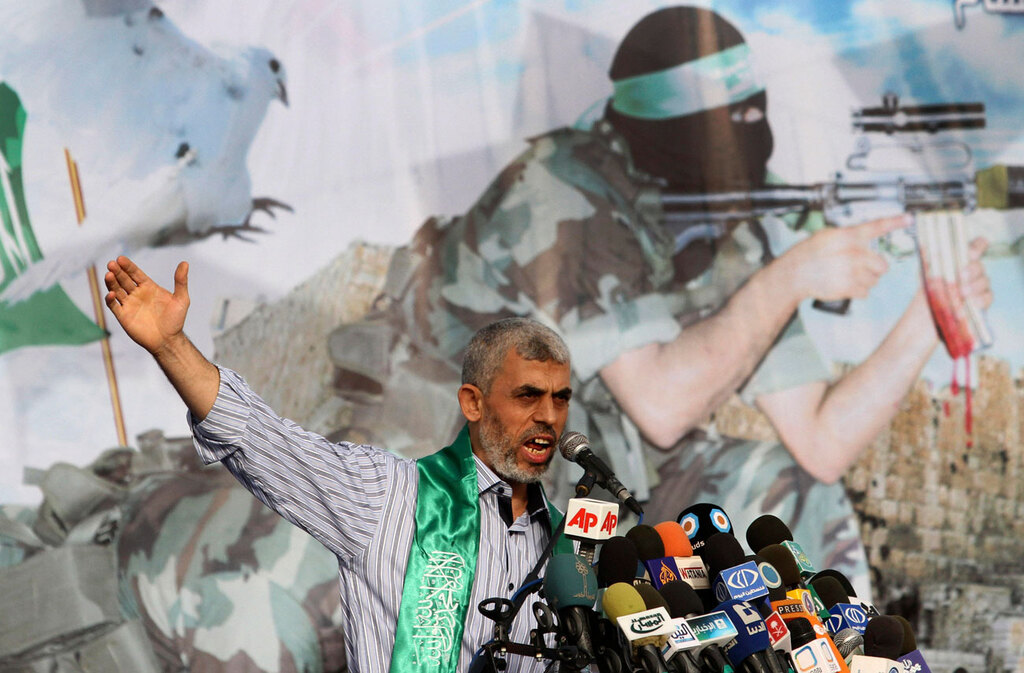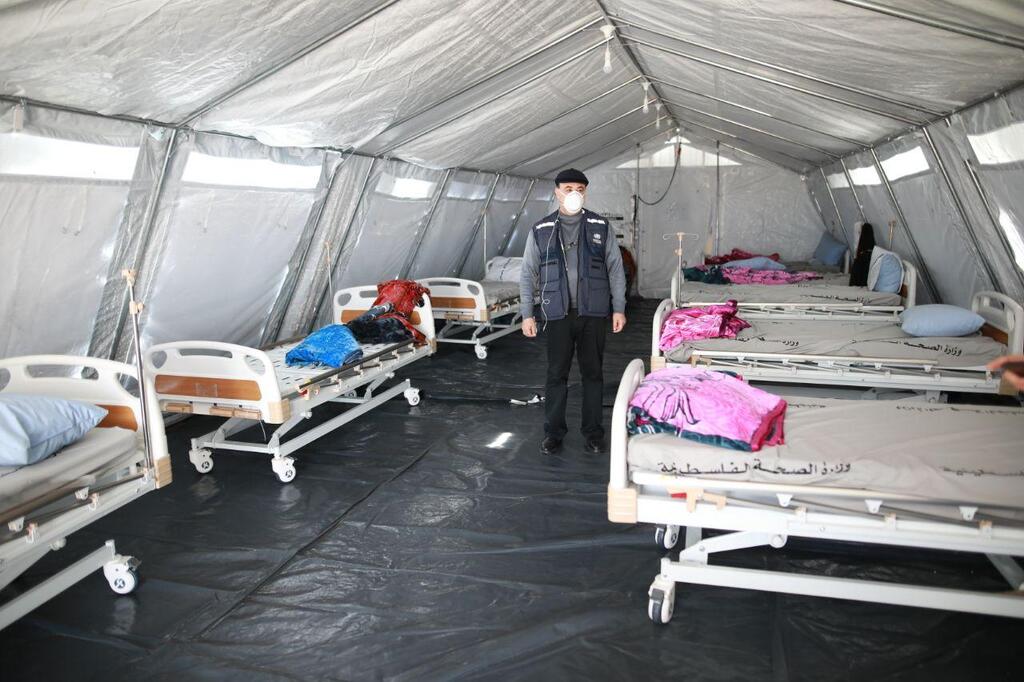Getting your Trinity Audio player ready...
Exactly seven days – minus four hours - elapsed between last week's rocket fire on Ashdod and the outskirts of Rishon Lezion and the rocket fire on Ashkelon on Saturday night.
This time there was no lightning to be seen in the skies of Gaza. And if it was not a tropical storm, meteor showers or electromagnetic waves from the North Pole, then what caused whoever it was to fire the rocket on Saturday night?
In conversations with several sources in the Gaza Strip, the following scenario unfolded: Those who fired the latest rocket, whatever their organizational affiliation, did so after receiving a green light from Hamas or at least while Gaza's rulers closed their eyes to what was going on.
And why does Hamas have an interest in gently needling Israel? Because in the last week the Gaza Strip has been breaking coronavirus morbidity records on an almost daily basis.
Over the weekend, 1,600 new patients were diagnosed in Gaza. This is a higher daily number of infections than in Israel, which has a population five times larger than that of the Gaza Strip. But the really bad news is that the percentage of positive tests in Gaza stood at 30%.
"It was a rocket for ventilators and medical equipment," one source said. "The situation in Gaza is difficult - and this is Hamas' way of signaling that."
Although the World Health Organization is doing its best to provide Gaza with medical assistance in its battle against the virus, it seems that the situation in the Strip is beginning to reach maximum capacity for treating COVID-19.
Israel generally approves the entrance of medical equipment into Gaza while the Palestinian Authority is routinely indifferent to what is happening there and is less than happy to help Hamas in any way.
Hamas in Gaza is a government entity skilled at exporting its internal woes. In other words, when Hamas feels that it is under fire from its own public, it immediately moves to divert it towards Israel.
As such, all the old and tired clichés that have been heard in recent days from Israeli military sources - like "Hamas is not currently interested in an escalation" and/or "Hamas has been deterred" - are only relevant if there is calm in the Gaza Strip. But there is no calm in the Gaza Strip, there is only corona.
For it was just last April that local Hamas leader Yahya Sinwar went on television to threaten that if they needed respirators in Gaza, he would make sure that Israelis could not breathe either.
Last week's rockets and Saturday night's rocket are just a classic reminder of Sinwar's promise to Israel and mediators about the explosive situation. And lightning has nothing to do with it.
Not buying the excuses
In recent years, a "red telephone" has been used between Jerusalem and Gaza to convey urgent messages.
The switchboard to which both sides direct their messages is in Cairo, at the headquarters of Egyptian intelligence.
In many instances, the messages passed using this method have prevented mistaken assessments of the other's actions and spared unnecessary rounds of violence. But it seems Israel fell too much in love with this tool.
For example, last week it was used to convey the message from Hamas to Israel that damage caused by the weather had led to the launch of the rockets at the center of the country.
In Israel, they rushed to accept the clarification from Gaza, struck a handful of tin sheds on the Gaza border in order to tick the response box and were sure to release the message they received.
They were also quick to announce the fact that Military Intelligence identified the launchers from which the rockets were fired (by mistake of course) as belonging to Hamas and not Islamic Jihad.
But by Saturday night, after the latest rocket fire, the tone had already changed. Suddenly there was no more talk of mistakes, suddenly the retaliatory attack was far more significant, suddenly the IDF Spokesman's response included the old caveat that "Hamas is responsible for what happens in the Gaza Strip."
Keen observers will note that this phrase did not appear in the statement about last week's attack in the Gaza Strip.
It seems that someone is saying that Israel is not buying every word that Hamas says to Israel via the Egyptians.
Previous experience indeed shows that Sinwar knows very well how to use Egyptian intelligence as a tool to put pressure on Israel.
Sometimes it is worth learning from past experience to understand that "launch errors" always miraculously occur at sensitive times, and the Hamas leadership in Gaza is well aware of which weak spots it can aggravate to get its message across (and then shouting that it was all a mistake).
It's not lightning, it's just the coronavirus.





